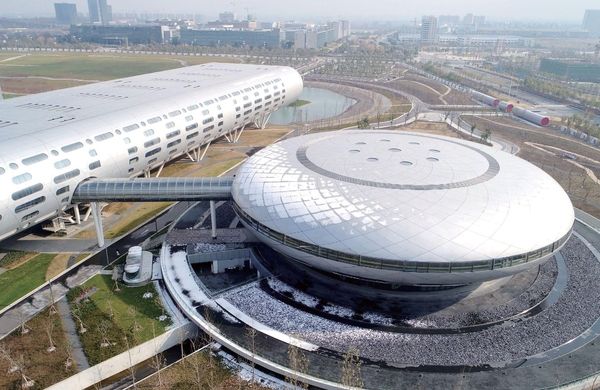Input 2021.03.08 06:00
Samsung and Austin fab expansion discussions… Arizona and New York road review
Global Foundry (GF) promotes new plant in Malta, USA
Biden “Secures $37 billion in budget for incentives”

In the industry, with the full bloom of 5G mobile communication (5G) smartphones, the emergence of electric and autonomous vehicles, and the spread of high-performance computing (HPC), foundries that produce system semiconductors are expected to boom for the time being. It is analyzed that this is why the competition for expansion of foundry companies representing each country, such as Korea, the United States, and Taiwan, has intensified.
According to the semiconductor industry on the 8th, TSMC will build six factories in the United States. The only money spent here is 36 billion dollars. Through this, TSMC increased its originally planned production plan of 20,000 wafers per month to 100,000 sheets by five times. With the recent increase in demand for system semiconductors such as mobile application processors, automotive semiconductors, and system-on-chip (SoC) for data centers, the company plans to solidify its leadership position in the industry with aggressive expansion investments.
Among these plans, TSMC announced a plan to build a semiconductor fab in Arizona, USA, announced in May of last year. At the time, TSMC announced that it would invest $12 billion in the new plant from this year to 2029. The plant is expected to produce semiconductors from 2024 through a 5 nanometer (nm·1 billionth of a meter) microprocessing using extreme ultraviolet (EUV) exposure equipment.
Arizona, where the factory will be built, is responding with active support. Arizona state authorities are planning to provide a total of $250 million (about 23.1 billion won) to the TSMC plant. It is observed that tax benefits are influential. It also promised to smoothly supply water, which is essential for semiconductor production.
TSMC is also actively investing in Taiwan and Japan. It is building a 3-nano fab and plans to increase its production capacity with a 5-nano fab that we already have. TSMC’s 3-nano process is scheduled to start operation in the second half of next year, producing 55,000 wafers per month in the early stage, and then producing 105,000 wafers by 2023. The 5-nano fab is expected to be able to produce up to 120,000 sheets per month. In Japan, it was decided to build a research and development (R&D) center worth 20 billion yen (about 200 billion won).

The industry believes that Samsung Electronics is conservatively investing in this field this year due to the prospect of a supercycle of memory semiconductors such as DRAM and NAND flash. Therefore, most of the investment is expected to be used to strengthen foundry capacity.
At present, the biggest concern is the expansion of the Austin fab, which plans to invest 17 billion dollars (about 1,200 trillion won), and Samsung Electronics secured a 1.04 ㎢ new factory site near the local fab, which has been operating for more than 20 years since 1998. I’m doing it.
However, the expansion was not completely decided. A company official said, “Currently, we are continuing discussions with the Austin City authorities in various fields,” and “We are negotiating to bring out a consultation on the best terms.” As one of the conditions for expanding the Austin fab, Samsung Electronics is offering a tax reduction of $85.47 million (about 900 billion won) over 20 years.
It is reported that Samsung Electronics is also considering building factories in other regions of the United States if negotiations with the city of Austin are not feasible. Two in Arizona and two in New York.
It will also strengthen the production capacity of Korean fabs. First of all, it plans to increase the production of 5-nano foundry in Pyeongtaek Campus Line 2 (P2), which started operation last year, from 28,000 pieces per month to 43,000 pieces per month. Line 3 (P3), which is currently under construction, is scheduled for mass production in the second half of 2023.
US Global Foundry (GF), which ranks third in the industry with a 7% market share, invested a total of 1.4 billion dollars (about 1.58 trillion won) in three factories located in Malta, Germany, Dresden, and Singapore this year. Increase the production capacity of nano-processed chips.
“One-third of the investment will come from customers who want to increase supply,” said Thomas Colefield, CEO of Global Foundry. And the growth rate of the semiconductor industry is twice as fast as expected.”

“The expansion of the Malta plant will be decided according to the’Chips for America Act’, which incentivizes the production and R&D of semiconductors in the United States,” said Colefield’s CEO. The bill was prepared last year, and on the 24th of last month, US President Joe Biden announced that he would pursue a budget of 37 billion dollars (about 41.2 trillion won) for the enforcement of the law.
